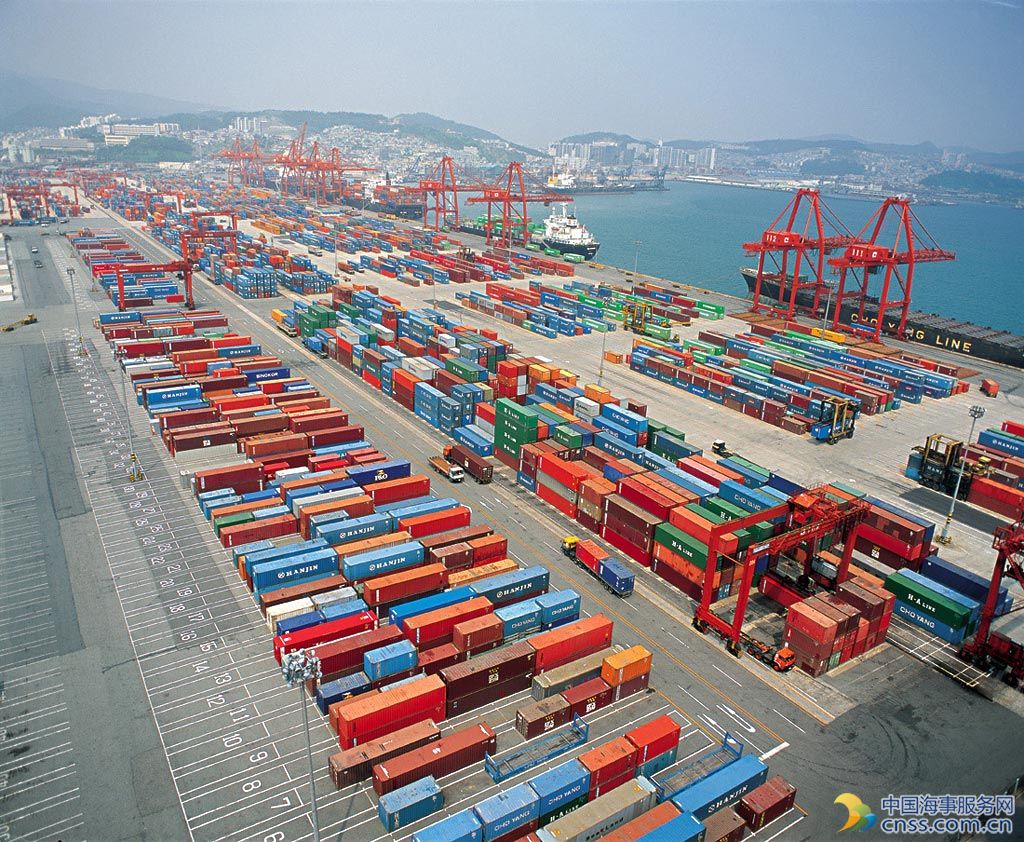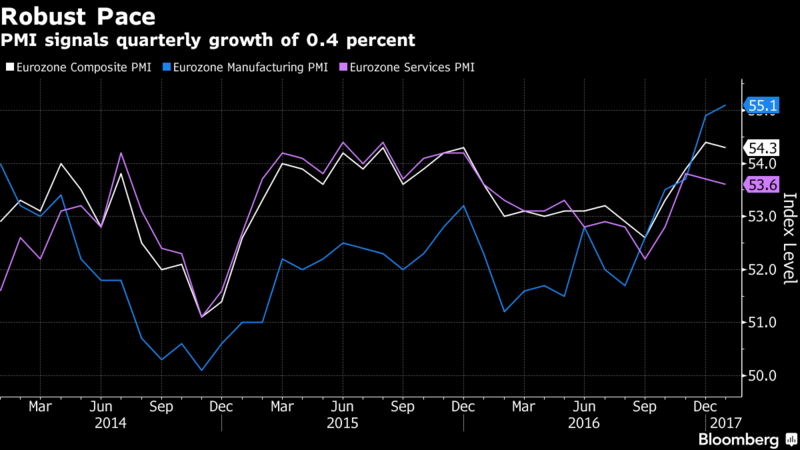Euro Area Starts 2017 on Strong Note as Price Pressures Build

The euro-area economy expanded at a robust pace at the start of the year as inflation pressures increased, according to IHS Markit.
A Purchasing Managers’ Index signaled quarterly growth of 0.4 percent, with broad-based expansion in both manufacturing and services, the London-based company said in a statement on Tuesday. Although the gauge slipped to 54.3 in January from 54.4 in December, economic momentum remained robust, it said. Economists surveyed by Bloomberg predicted a reading of 54.5.

“Perhaps the most encouraging development is the upturn in hiring, with January seeing the largest monthly rise in employment for nine years amid improved optimism about the year ahead,” said Chris Williamson, chief business economist at IHS Markit. While selling-price growth remained subdued, “the recent strengthening of demand is at least starting to help restore some pricing power among suppliers, hinting at an upturn in core inflationary pressures.”
The near-absence of underlying price growth is a concern for the European Central Bank, which hasn’t met its inflation mandate in almost four years. Policy makers are relying on record-low interest rates and a 2.28 trillion-euro ($2.5 trillion) asset-purchase plan to fuel inflation, especially as euro-skeptic parties gain ground ahead of elections in some of the region’s largest economies.
The price gains companies reported in January often reflected more expensive commodities as well as higher import costs as a result of the euro’s depreciation, IHS Markit said. Selling prices recorded the largest two-month increase in more than five years.
A measure for manufacturing rose to 55.1 in January from 54.9 in December, the highest level in almost six years, while a services PMI eased to 53.6 from 53.7. Hiring gained momentum in both industries amid sustained growth of new orders. An index of business expectations for the next 12 months rose to the highest level since data were first collected in 2012.
“The euro-zone economy has started 2017 on a strong note,” Williamson said. “Political risk continues to be widely eschewed, with companies focusing instead on expanding their sales in the coming year.”
Source: Bloomberg
HEADLINES
- Do shipping markets want Biden or Trump for the win?
- All 18 crew safe after fire on Japanese-owned tanker off Singapore
- Singapore launching $44m co-investment initiative for maritime tech start-ups
- Cosco debuts Global Shipping Industry Chain Cooperation Initiative
- US warns of more shipping sanctions
- China continues seaport consolidation as Dalian offer goes unconditional